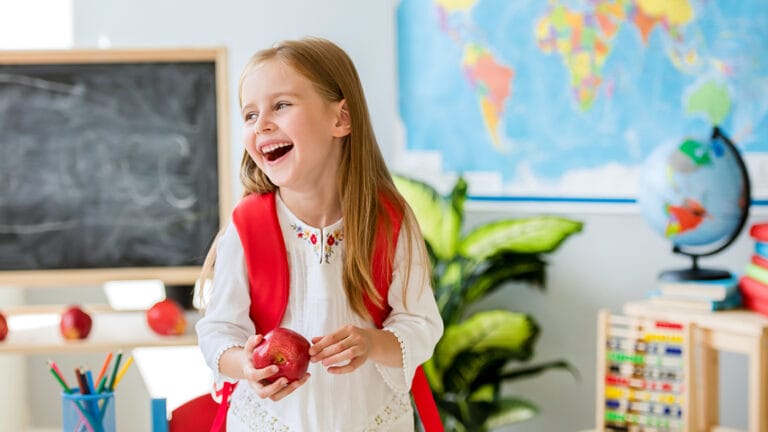Divorce can be a very stressful time for all members of a family. In many cases, it can be a time of confusion, worry, and sadness. Children are very resilient and can overcome difficult challenges.
Children of different ages react differently to their parents divorcing
Babies (Birth to 18 Months)
Babies are able to feel the tension in the home and between their parents but they cannot understand the reasoning behind tension and conflict. In order to ease the transition that divorce brings, parents can work to keep consistency and routines. Normal daily routines can include sleep times and meals. Offering favorite toys and security items, as well as spending extra time holding and offering physical comfort to a child can ease the stress of a divorce for a child.
18 Months to 3 Years
Children 18 months to 3 years of age are self-centered and may think that they have caused their parents to break up.
Some indicators that a divorce is negatively affecting a child are:
- Crying and wanting more attention than usual
- Regressing and returning to thumb sucking
- Resisting toilet training
- Having a fear of being abandoned
- Having trouble going to sleep or sleeping alone at night
If possible, parents should work together to develop normal, predictable routines that a child can easily follow. It is also important as a parent, to spend quality time and offer extra attention to a child during a divorce and ask trusted friends and relatives to do the same.
3 to 6 Years
Preschoolers don’t understand the whole notion of divorce and don’t want their parents to separate. Like toddlers, preschoolers believe they are ultimately responsible for the separation of their parents.
They may experience:
- Uncertain feelings about the future
- Feelings of anger trapped inside
- Unpleasant thoughts, ideas, and nightmares
Parents should try to handle divorce in an open and positive manner if possible, as a child of 3 to 6 years-old will reflect parents’ moods and attitudes. Children in this age range will need someone to talk to and a way to express their feelings. A child may respond well to age-appropriate books about the topic. Setting and consistently adhering to a regular visitation schedule with the non-custodial parent (if safe and possible) can help foster feelings security for a child.
5 to 11 Years
If school-age kids have grown up in a nurturing environment, it will be only natural for them to have a fear of being abandoned during a divorce. Children ages 5 to 8 years old, will not completely understand the concept of divorce and may feel as if their parents are divorcing them. They may worry about losing their father or mother and fantasize that their parents will get back together.
Kids 8 to 11 years old may blame one parent for the separation and align themselves with the “good” parent, against the “bad” parent. They may accuse their parents of being mean or selfish and express their anger in various ways: Boys may be more prone to fight with classmates or lash out against the world, while girls may become anxious, withdrawn, or depressed. Children of either gender may experience upset stomachs or headaches due to stress or may make up symptoms in order to stay home from school.
Elementary school children often time feel extreme loss and rejection during a divorce. Many times, children will withdraw. Parents can help rebuild a child’s sense of security and self-esteem by encouraging activities and events that a child enjoys and helping them reach out to friends, so as not to become removed from others. During a divorce, each parent should spend quality time with the child and encourage open communication about the child’s feelings which will aid in reassuring a child that neither parent will abandon them. If a child is blaming themselves for a divorce, it is important for each parent to reiterate that the divorce is not the fault of the child. Children this age thrive on predictability, particularly during times of turmoil; it is important to maintain a regular visitation schedule.
The Effects of Divorce on Teens
Teens whose parents divorce, experience a wide range of emotions. Many times those emotions can manifest in some common disruptions in life. Common impacts of divorce on teens include:
- Academic problems
- Behavior problems at school
- Defiance and non-compliance
- Depression
- Difficulty forming intimate relationships
- Increased stress
- Sadness or anger at one or both parents
- Trouble getting along with siblings, peers, and parents
- Trouble sleeping
- Risky behaviors (early sexual activity, substance abuse, suicidal ideation, and suicide attempts)
Since teens of divorced parents are at increased risk for engaging in risky behaviors, it is crucial to keep warning signs of these things at the top of mind.
The most significant predictor of how teens will do after a divorce depends on how well their parents get along. Even when a divorce is amicable, it is natural for teens to grieve the loss of their family life. Expect to see your teen experience a wide variety of emotions, ranging from anger to sadness. Let them know that it’s healthy to share those feelings, but make it clear that it’s important to express them in a healthy manner.
Some tips for helping teens adjust include:
- Allow them to weigh in on decisions about their lives
- Attend their extra-curricular activities
- Be consistent with rules and discipline
- Encourage their relationship with their other parent
- Have honest communication about changes in the family
- Maintain a consistent and predictable schedule
- Make sure they feel comfortable asking questions
- Model appropriate behavior
- Offer consistent affection and support
- Offer a safe space for them to express their emotions
- As a parent, keep cool – kids need the parent to keep a level head even while going through a challenging and difficult time.
How to make a divorce transition less difficult for children
- Encourage children to share their feelings, positive or negative about what’s happening.
- Acknowledge feelings as normal and remind children that even though the family is undergoing a major change, their parents will always be their parents and they will always love them.
- Do not use kids as messengers or go-betweens, especially with feuds.
- Do not ask children for information about the other parent’s household, friends, income, or activities.
- As a parent, figure out how to reduce stress in your life to help your family.
- Find support from friends, relatives, church, religious groups, and organizations.
- When possible, kids should be encouraged to have as positive of an outlook on both parents as they can. Even under the best of circumstances, separation and divorce can be painful and disappointing for kids.
- Parents need to remember to take care of themselves. Be patient; emotional wounds need time to heal.
Co-parenting
1. As a parent and divorcee, being a co-parent is your new relationship. Being considerate and respectful includes:
- Letting your ex-spouse know about school events
- Being flexible with your schedule when possible
- Take the opinion of the other parent seriously
- Make requests instead of making statements which can be misinterpreted as demands (Requests can begin with, “Would you be willing to…?” or “Can we try…?”)
2. Set hurt and anger aside. It’s okay to be hurt and angry, but your feelings don’t have to dictate your behavior. Reach out to people you trust to talk about your feelings. Never vent to your child. Don’t talk badly about your ex-spouse to your children.
3. Agree to disagree and be ready to compromise. Don’t argue with your ex-spouse in front of your children. Parents do not need to meet in person if it is not necessary, text, phone calls, and emails are a great alternative.
4. Establish a routine for the family. Remember that every reunion with one parent is a separation with the other, each “hello” is also a “goodbye.” As kids prepare to leave your house for your ex-spouse’s, try to stay positive and deliver them on time.
5. Help children anticipate change. Remind children they will be leaving for the other parent’s house a day or two before the visit.
6. Always drop off—never pick up the child at the other home. If you need to pick-up, do it at a neutral place, like in a parking lot. Avoid ‘taking’ your child from the other parent so that you don’t risk interrupting or curtailing a special moment. The beginning of your child’s return to your home can be awkward or even rocky. To help your child adjust:
- Keep things low-key. When children first enter your home, try to have some down time together—read a book or do some other quiet activity.
- Double up. To make packing simpler and make kids feel more comfortable when they are at the other parent’s house, have kids keep certain basics—toothbrush, hairbrush, pajamas—at both houses.
- Allow your child space. Children often need a little time to adjust to the transition. If they seem to need some space, do something else nearby. In time, things will get back to normal.
- Establish a special routine. Play a game or serve the same special meal each time your child returns. Kids thrive on routine—if they know exactly what to expect when they return to you it can help the transition.
- Ensure that boyfriends, girlfriends, and potential stepparents go slow, stay out of the divorce, and don’t interfere in a child’s relationship with either parent. Do not encourage the child to call potential step parents Mom or Dad.
Divorce is not an event, it’s a process. Allow yourself, your ex-spouse, and your children at least two years for readjustment.





